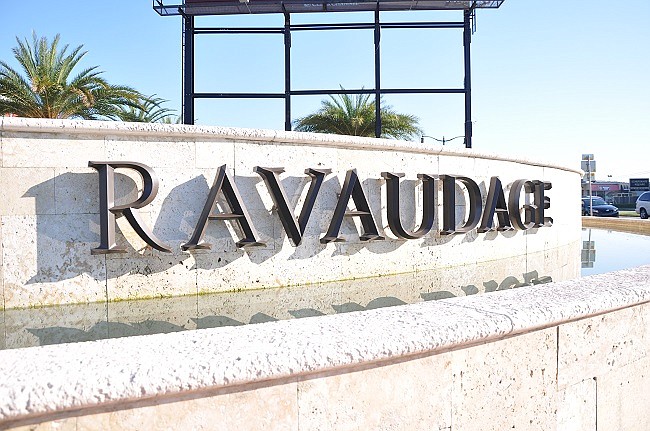- April 28, 2024
-
-
Loading

Loading

UPDATED 6:35:00 1/30/15: A previous edition of this story misidentified a variance vote on the Ravaudage development as one that increased overall density of the project, and did not clarify the circumstances preventing a business owner from being able to develop property further. Those corrections and clarifications are in the updated article below. Additional updates may follow.
A development vote last month has raised conflict of interest concerns about a Winter Park City Commissioner who possibly received developer-tied contributions to his political campaign just days before the vote. But that commissioner said the vote and the contribution aren’t connected, and that the developer involved said he was not connected to the donation.
Commissioner Steven Leary was one of three members of the City Commission on Dec. 8 to approve a variance of the Ravaudage development, growing an apartment building from four stories to six stories, while simultaneously reducing the height of an alternate building. The request, made by local developer Dan Bellows representing Benjamin Partners Ltd., also allowed the apartments to be built closer to the abutting roads.
But contributions of $1,000 from five different entities were deposited into Leary’s current mayoral campaign accounts just the week before. The five parties – The Greenhouse Partnership, CRDI LLC, Venetian LLC, WFG LTD, and TGG LLC – all sit under the umbrella of Welbourne Avenue Corporation, a domestic for-profit corporation where Bellows previously acted as president, according to market listings at Visulate.com and Corporation Wiki.
Winter Park attorney Robert Saltsman, who has worked closely with Bellows as the Ravaudage project was developed over the course of more than a decade, and who was nominated to the Ravaudage Community Development District’s Board of Supervisors in 2013, is currently listed as the head of the Welbourne Avenue Corporation. According to Orange County tax records from June 2014, Saltsman is also tied to Benjamin Partners Ltd., which Bellows worked under to secure variance in December.
Leary said he has not received any campaign contributions from Bellows, that he has specifically avoided taking donations from Bellows, and that opponents may be making spurious connections, including Bellows’ relationship with Saltsman, to tie him to that money.
“Dan Bellows has not made a single contribution to my campaign to this day,” Leary said.
“He has nothing to do with those LLCs.”
Bellows also said that he did not donate any money to Leary's campaign and that he has no ownership in the LLCs in question.
But Bellows has a history of representing at least three of those entities, documented in Winter Park City Commission records.
Minutes from July 8, 2013 City Commission list Bellows’ name alongside CRDI LLC, as well as Venetian LLC during a meeting on April 12, 2010 and WFG LTD in a meeting five months later.
It wouldn’t be the first instance where a potential conflict in favor of a development project was raised. Winter Park resident Judy Maynard brought the public comment to a halt during the City Commission’s June 9 meeting when she demanded that Leary recuse himself from the vote on an ordinance allowing planned developments on four-lane roads.
Lumber Yard LLC, a businesses managed under Leary’s Leary Management group, purchased a property formerly held by Thomas Lumber Company at 784 Orange Ave. in December 2013, according to the Orange County Property Appraiser.
City Attorney Larry Brown said he had already discussed the concerns with the Commissioner and believed there wasn’t a conflict in this case.
“I want to assure the public that I’ve provided legal advice to Commissioner Leary on the question of potential conflict,” Brown said at the meeting.
“In my opinion, the size of the class of property owners with land abutting four-lane roads in Winter Park is sufficiently large. Under the Commission on Ethics precedent, I don’t think this particular vote tonight would come anywhere close to violating.”
But the same Lumber Yard property, developed for retail businesses, could have benefitted from a new $6 million parking garage across the street – a project the city actively pursued last year when Leary and a majority of the City Commission voted to extend the CRA to help pay for a new baseball stadium, which would have required a parking garage for games during the season.
Brown requested an opinion from the Commission on Ethics about the stadium vote on Leary’s behalf. The COE responded that Leary would not have a conflict of interest preventing him from voting on the stadium. But that decision, and the dismissal of ethics concerns, didn’t apply to the garage property.
The baseball project eventually fell through in August last year due to financial feasibility, location issues, and problems negotiating a deal.
Leary said that despite the parking lot for the retail property — co-owned by him — containing 23 spaces plus three in front of the buildings, his company would not be seeking out tenants capable of exceeding the lot’s capacity, so the garage wouldn’t be a benefit.
Preservation-oriented Winter Park residents have long been wary of development projects in the city. Controversy swirled back in 2005 when preliminary approval was given to The Carlisle, a proposed four-story building next to the city’s Central Park, which left residents livid.
Many residents accused City Commissioners of foul play, while the developers of the project sued the city for not granting a final approval.
Winter Park ultimately paid the developers $3.7 million to walk away from the project in 2007, putting the controversy to rest.
Additional reporting by Isaac Babcock and Sarah Wilson.